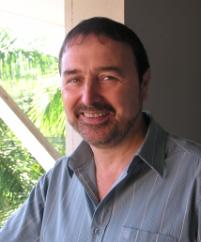New professor works with Indian villagers to reduce water-borne diseases
Published on 13 August, 2007
Newly-arrived Professor of Biomedical Sciences Rob Reed is proud of his 10-year record of collaboration on safe drinking water projects in India, and intends to continue his association with that country.
Most recently based in England and now at CQU Rockhampton, Professor Reed is developing proposals for collaborative (CQU-India) research into the viability of using sunlight to combat fish pathogens (harmful microbes), based on CQU's existing aquaculture expertise.

His association with India's water quality began in 1997 through a collaboration with Kochi University on techniques for using sunlight and safe storage to kill a range of water-borne stomach bugs which can kill toddlers and make adults sick.
It was found that these techniques reduced the incidence of diarrhoea-related diseases by more than half.
Professor Reed has also focused on detection of faecal indicator bacteria which are used as indicators of contamination of drinking water.
"The lack of satisfactory drinking water is a major problem for a significant proportion of the global population," Professor Reed said.
"Research in the UK and in India has shown that exposure of water containing faecal indicator bacteria to full-strength sunlight for several hours is sufficient to inactivate the bacteria - but only if the water is fully oxygenated.
"The demonstration of an oxygen requirement for the inactivation of faecal bacteria in sunlight indicates that solar-based water disinfection systems will require fully aerobic conditions in order to function effectively."
More recently, Professor Reed has worked with funding from the International Copper Association to establish a project based in Chandigarh, involving PhD research into the effectiveness of using copper pitchers to kill stomach bugs in water. It is hoped that the PhD student will be able to enrol at CQU.

